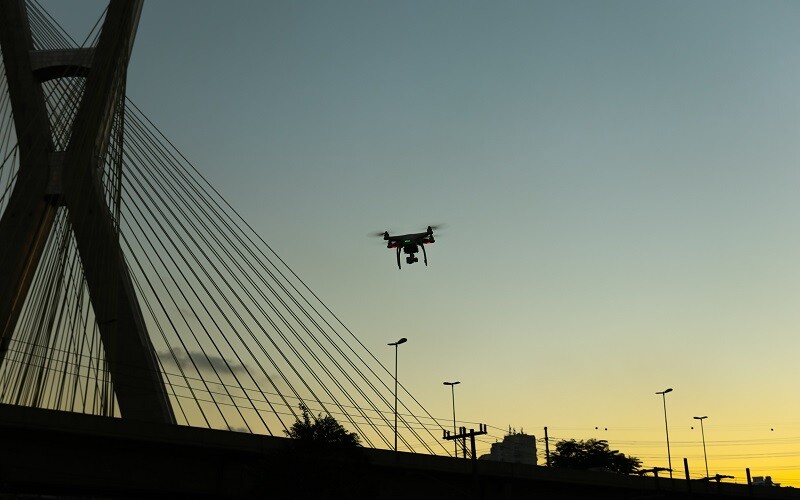This week’s “Around the Commercial Drone Industry” news round-up looks at a new drone design inspired by spiders, improvements in drone to ground radio communications, and an effort in Kuala Lumpur to use uncrewed systems to monitor “errant” police officers,
Korea’s Spider-Inspired Drone
Video from CNN highlights a new approach to drone technology. Recently, researchers at the Korea Advanced Institute of Science & Technology (KAIST) introduced their Caros-H drone, a vehicle that can both fly, using its four propellers, and walk, using its six legs. Inspired by the way insects such as spiders move about, the Caros-H can go places other drones cannot, making it useful for cleaning walls and solar panels, inspecting airplanes, and other operations.
Improving Drone to Ground Radio Communications
A three-year aerial research project has resulted in the development of “the first elements of a millimetre-wave (mmWave) wireless communication system that could be used by Unmanned Aerial Systems (UAS) and ground units, such as cars or robots.” According to a report in Aerospace Testing International, researchers the VTT Technical Research Centre of Finland and New York University (NYU) Tandon School of Engineering “have developed and tested the UAS-based mmWave channel measurement system and relevant channel models to help understand how radio signals propagate in the air and around buildings.” The new approach “could enable high data rate communication between drones and ground robots for use in urban safety and emergency response missions.”
Drones Police the Police
In Kuala Lumpur, the Inspector-General of Police has turned to drone surveillance to identify officers who are slacking off on the job. According to Yahoo!News, the police’s Integrity and Standard Compliance Department (JIPS) will deploy drones to investigate and monitor “errant officers “who are neglecting their duties, such as playing golf while on the clock.” As part of the effort, “officers at the federal, state, and district levels had also been instructed to act against officers found engaging in frivolous activities or spending beyond their means.”















Comments